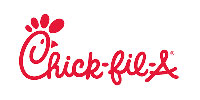A while back, I wrote a post titled WHAT DOES YOUR BRAND STAND FOR?, which looked at how brands have handled controversy and how that strategy affects brand perception. This looks at a similar and possibly bigger issue–what does your company stand for and how does that affect your company and your brand?
This Wednesday, Chip Bergh, President and CEO of Levi Strauss & Co, the company behind America’s most iconic but possibly fading [1] blue jeans brand, made a bold company policy statement [2]:
“So, while we understand the heartfelt and strongly-held opinions on both sides of the gun debate, it is with the safety and security of our employees and customers in mind that we respectfully ask people not to bring firearms into our stores, offices or facilities, even in states where it’s permitted by law.
Of course, authorized members of law enforcement are an exception.”
Levi Strauss isn’t the first company to do this in recent history. Starbucks and Target have previously made similar company policy announcements. But Levi Strauss did it immediately following the most divisive presidential election in recent history, in which the Second Amendment was a key issue. People from outside the United States have difficulty understanding the gravity of this issue for Americans.
As recent history has proven, there will be some consumer backlash and threatened or actual boycotting of the Levis Strauss brand over this. The company knows this and proceeded. They have credibility in this principled decision as well–their brand was born of America’s Wild West and the man making the announcement is a US military veteran.
Company principles build brands
Levi Strauss believes in something critical to the well-being of the customers and employees in their stores and has acted on that belief in a way that involves financial risk for the company. I want to buy my jeans from a company that acts that way. I believe other people, no matter what they believe about the freedom to bear arms, will feel the same way, even if they are the silent majority.

Let’s be perfectly clear that a company’s principled conviction does not compensate for an inferior product or service. Levi Strauss makes authentic, durable jeans that still define their category. Chick-fil-A makes outstanding chicken burgers and authentic milkshakes.
So what does your company stand for? The customers you may lose in sticking to your principles aren’t your best long term customers anyway. Having company principles and a great product buys loyalty from your best customers. So have confidence in the latter and in yourself.
- ‘Plateaued’ may be the better term, but I was determined to use the ‘fading’ bit. For the last five years, Levis Strauss & Company revenue has been basically flat at an impressive $4.6B, with a slightly less stable average net income of $165M or 4% of turnover. Not bad at all for a 163-year-old family-owned company, or any company.
- Phil Wahba, Levi Strauss CEO Asks Gun Owners Not to Bring Weapons Into Stores, Fortune, November 30, 2016.





